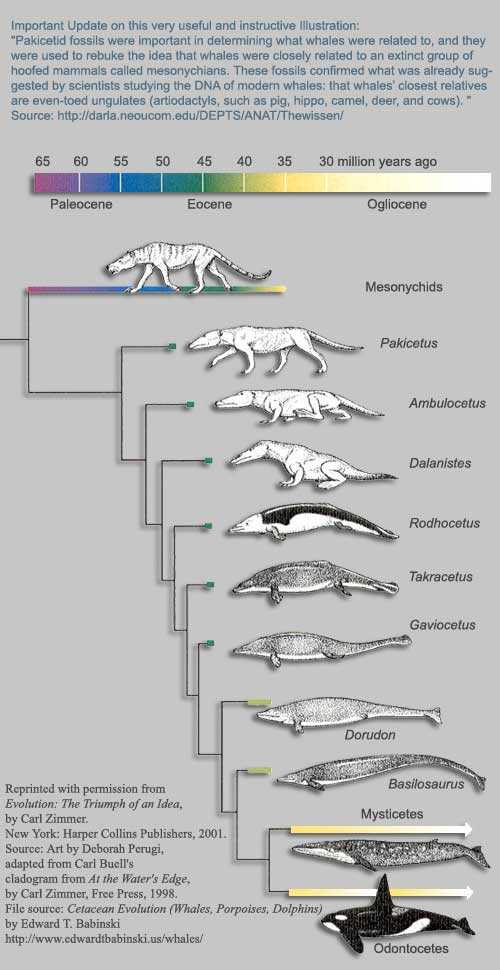-Sh1fty- wrote:
No but seriously, I don't understand how a bing bang makes sense. "So first, we had nothing and that nothing MAGICALLY evolved from a little cell to 6 billion humans, a motherfreaking huge earth with diverse and complex ecosystems and weather.
All this from nothing...
sure
From a non-religious point of view, it makes more sense that it was somehow created by somebody or something than it just magically materializing.
lol nothing -> something
makes perfect sense
-Sh1fty- wrote:
I still stand by my guns on the evolution ideas though. If everything slowly degrades there's no freaking way that after reproducing the same crap thousands of times your slowly start getting a better version of the previous one. Makes zero freaking sense.
The big bang as an idea has many theories to declare it's origin. This however, is far beyond the capabilities of modern science and as such they are only guesses. Such include, yes, the theory that there was absolutely nothing, or for example string theory which tells us that the cause may have been two different universes colliding allowing an explosion of such magnitude to occur.
The existence of the big bang however is not mere guesswork; going by the fact that the universe is expanding at an increasing rate and galaxies are moving farther apart, it's only logical to assume that everything must have been located much closer to each other in the past. The reasonable explanation being that it must have been an explosion which caused everything to float apart; the big bang.
On to evolution; firstly it does not clash with thermodynamics as thermodynamics describes events happening in a closed system with no outside interference / dependence. It tries to describe the universe as a whole if anything (over vast periods of time), and not the concept of life on earth.
Now, you may have heard of Darwin's trip to the Galapagos isles. There is a species of bird on this island that all have very remarkably similar physical traits except for it's beak, as illustrated here;

The similarities in between these finches are undeniable, they are related. Each of these birds however are located on very different parts of the islands or on different islands entirely. These islands all have a slightly different climate and differing flora and fauna. The only reasonable explanation for the differences in between this same species of finches is that their physical appearance has adapted to it's surroundings in order to have a better chance of survival. These birds were the kick start to Darwin's concept of evolution.
These changes in physical appearance occur on the short term, but what about the long term; the evolution of entirely different species?
There is a wonderful example of this concept; the whale. The whale, compared to all other sea-bound animals is rather strange. It's a mammal, It cannot breathe underwater and as such must surface every once in a while to take in air, it moves it's tail in a different way; through horizontal motion instead of vertical and most importantly - the whale has a strange skeletal structure and a set of bones which are useless in water.
Let's take a look at the skeleton of a humpback whale;

Let's start at it's fins. As you may notice inside, around the midsection the whale has the same set of bones you have in your fore-arm, allowing the rotation of the fin. It has a shoulder bone and a skeletal structure in the tip of it's fins very similar to paws or hands of land-based animals.
However, most strange of all are the set of bones the whale has underneath the midsection of it's tail. They have no attachments and simply exist there.. inside it's body. If we were to regard the assumption of unchanging design a lá god a fact this really defies all logical explanations and reason. Why would god put them there? They are useless, they serve no purpose; unless it may have served a purpose in a distant past!
Looking at the overall skeletal structure of a whale and the fact that it's a mammal, it may just be so that it has evolved from a land based mammal. To see if this is true, let's take a look at a graph depicting the evolution of the whale;

The similarities in between each species in succession are quite striking, however for a more detailed perception on the matter let's take a look at some of the skeletons of the animals in the graph side-by-side;
Pakicetus Inachus (55 million years ago)


Ambolucetus Natans (51 million years ago)

Rhodocetus Kasrani (50 million years ago)


And lastly, the Dorudon Atrox (41 million years ago)

The similarity in not only the shape of the skull, but the spine, the evolution of the hind legs to adapt to a marine environment - and the increasing size allowed by living in the sea, all point towards the assumption that these animals were in fact related to one another. Sadly, evolution such as this is an extremely slow and gradual process, and as such we will never be able to observe it within a human lifetime. So slow that even multiple generations will never be able to observe it.
Now, this will all be a problem if you believe the earth and the universe to be no more than 10.000 years old, if this is the case I refer you to radiometric dating. Radiometric dating is a method used to observe radioactive isotopes within a substance. Radioactivity decays with time and forms by-products in the process allowing us, going by known decay rates, to date the substance. These methods are used to date rocks, fossils and even man made materials.
If even this is not convincing, I refer you to stars and galaxies observed by telescopes such as Hubble. Light has a speed at which it travels, being 300.000 km/h or about 180.000 miles an hour. The distance of a light-emitting object in the universe such a star can be calculated by determining the shift in position of the star against it's background of more distant stars. By measuring twice with an interval of six months (half the orbit of our planet around the sun) the distance can be measured, to make it more understandable - underneath is an illustration. There are many different methods such as this one to calculate distances in the universe.

Many, many stars and galaxies have been observed to be over 10.000 light years away, some even in the billions. The farthest galaxies in fact are over 10 billion light years away. The only reason we can see them is because the light emitted by those objects travelled to us in a period of time (without light, we cannot see). So, knowing that the speed of light is 300.000 km/h, a distance of 10 billion light years means the light has travelled for 10 billion years to reach us. This would not have been possible if the universe in fact was 10.000 years old.
Nor can the earth be 10.000 years old. The forming of a planet is a very, very slow process in which dust and rock particles emitted by a supernova (exploding star) orbit around a new star and slowly form together into clumps through collisions. If it gets large enough it will attract rocks due to it's gravity eventually forming itself into a planet. And then, from forming itself into a planet to actually being habitable takes a very long time. The core needs to be somewhat stable, it's orbit needs to be in the habitable zone around a star (not too hot, not too cold, a circular orbit and not an oval one causing extreme differences in temperature), there is a need for the basic building blocks of life (as we know it... so far) being hydrogen, oxygen, nitrogen and carbon and perhaps even arsenic going by a recent NASA observation. Once these are all there, life may start.
To argument this claim, rocks inside the earth have been dated to be multiple billions of years old (around 4 being the oldest I reckon) through radiometric dating. Fossils, through the same method have been recorded to be, at it's oldest, almost a billion years old. This is also why scientifically the age of the planet may change because, who knows, tomorrow we may find a rock that according to radiometric dating is 500.000 years older than the current oldest rock.
You see, the universe is one big self-sufficient, evolving, recycling system. It is not dependant on outside interference and as such, even if there was a god who created the big bang, it makes no sense for god to interfere with this creation. It would be illogical for god to create a planet or life, because the system can already make these things by itself. If he would have planned to create life and a planet in the first place and thus interfere with his own creation, why would he have made a self sufficient system to begin with?
I can't believe I took the time to write all this down, if you are still wholly unconvinced I declare you impervious to reason and a devolution of mankind.
Last edited by dayarath (2011-01-26 17:55:32)










